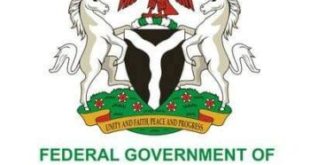Governments at various levels have been advised to improve tax administration processes to promote economic growth.
The tax experts issued the advice at the 2024 Annual Tax Week Symposium, themed; ‘Stimulating Revenue Growth through a Friendly Business and Tax Environment’, organised by the Lagos & District Society of the Chartered Institute of Taxation of Nigeria (CITN).
While delivering the presentation, the Managing Partner of Ascension, Alatoye Azeez, maintained that tax flow is business flow because only profitable businesses can pay taxes. Adding that the improvement of the business environment through tax incentives is key to a healthy economy.
According to him, several businesses that recently left Nigeria might have stayed if they had the right incentives.
He stated that government policies, economic impact, compliance and effectiveness, investor perspective and revenue implication must be thoroughly analysed in considering tax incentives.
He said, “Some people believe that when you grant tax incentives, you are losing government revenue. Is that true? Is that false? Or is it a combination of both? As big as the South-West is, besides Lagos, we do not have a five-star hotel.
“You can speak with big hospitality firms, and tell them — can you do a five-star hotel? We will give you a five-year tax holiday so that you can raise sufficient capital. Is it something that makes sense to us?”
Meanwhile, a Partner at Deloitte and Touche, Toluwalogo Odutayo, emphasised the need to bridge the gap between tax authorities, tax practitioners and taxpayers
According to her, tax authorities need to educate taxpayers on the modalities of filing their taxes.
She said, “Data privacy is another major concern that tax authorities need to look at. Most of the time, organisations and multinationals are worried about privacy rules, and because they also have global standards that they need to comply with, they get worried.”
She further identified gaps in Nigeria’s tax environment to include unwillingness to comply.
Poor taxpayer education, unnecessary delays in tax audits, overly aggressive approach to tax collection and recovery, ambiguity in tax laws and lack of synergy among tax administrators.
On his part, Partner Tax, Regulatory and People Services at KPMG, Adewale Ajayi, pointed out that corruption and ineffective leadership, policy inconsistency/misalignment, overdependence on oil revenue, sustained currency depreciation, insecurity, low level of tax compliance and poor tax administration, high inflationary pressure and high interest rates had greatly stifled Nigeria’s economic growth.
He expressed worry that 70 per cent of Nigeria’s revenues were used to service debts, reiterated the need for the country to improve on its current tax-to-GDP ratio, which is below many of its African counterparts.
The Managing Partner of Mazars, Uhabia Ojike, who was represented by Peter Nwofia, said low tax compliance reduced the government’s ability to raise revenue for developmental purposes.
He also lamented that Nigeria’s tax-to-GDP ratio had remained within 6 to 10 per cent for over 50 years.
In her address, the host and CITN Chairman, Lagos & District, Mrs. Zaynab Abdulkareem noted that the event was organised to sensitive government and operators on the need to improve tax administration to boost the Nigerian economy.
 National Telescope national telescope newspaper
National Telescope national telescope newspaper



